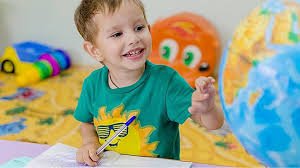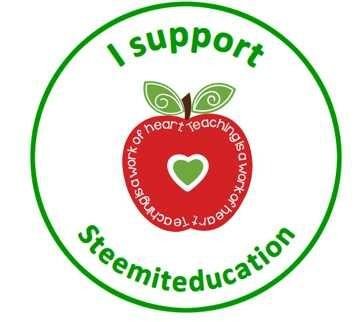Who Supports Our Children In Education
Many parents make schools the only source of support for their children's education. In fact, not a few seem to have released her from the obligation to educate her children, after she put her son to school.
Everything is left to school. Like people send dirty clothes to the laundry, just pay and receive the results only, in the form of clean clothes. Not a few are disappointed with the school, but can not do anything.

image source
Different views can be a source of conflict with children. Remember, the responsibility of children's education is on us, not the school. After all, the school only helps us in education.
In educating children it takes a variety of ways and strategies for them to grow and develop in accordance with the nature that has been given. Parents should agree on how the methods and patterns will be applied in the family, especially the children.1
They are very easy creatures to copy anything in this life, so we must be vigilant and careful in educating them. The following methods of educating children are derived from effective communication laws:
a. Respect
Respect is the first law in which we educate children. Remember that in principle people want to be respected and considered important. If we have to criticize or scold someone, do it with respect for one's pride and pride.
If we build communication with mutual respect, then we can build partnerships that generate synergies that will improve the effectiveness of our performance, both as individuals and as a whole as a team.
Educating children should respect and regard as adults who can be talked to, discussions, considerations, and decision-making. Parents' habits are that they do not want to be complicated and want something quickly and precisely, the child needs the process of making the right choice even slow, but appreciate that it is the best way for children to learn to be responsible.
b. Audible
Meaning of Audible, can be heard or understood well. In educating children should be two-way, because if the direction that happens is the desire of parents.
And we really expect the child to be able to facilitate in the opening "messages" that have been entrusted to each of our children. What happens today is the selfishness of parents who have taken children's dreams so they can not grow according to the best talent that has been given.
So parents should be good listeners to their children and become friends in listening to every complaint. This can be trained since the child is a toddler of course with a simple language. So parents should be good listeners for their children and become friends in listening to all complaints. This can be trained since toddlers of course with a simple language.
c. Clarity
a part from that the message must be well understood, the fourth law associated with it is the clarity of the message itself so as not to produce an interpretation.
Both parents must agree on the goal of sending their children to school so that when there is a problem parent are also fully accountable for the consequences of any problems that arise in the educational process.
If parents only accept the wrong and academically oriented, then better children are included in the guidance of study only. The purpose of education should be to create better character and morale by relying on the values of religion, culture, customs and the prevailing laws of nature.
It takes patience to make it happen, with the full support of the educational trilogy of Master, Parents, and Society.
d. Humble
The next law in educating children is a humble attitude. This attitude is the element associated with the first law to build respect for others, usually based on the humble attitude we have. We control our children's educational content. School is just a maid.
In another sense, schools are the environment that affects our children. In addition to school, their friends, neighbors, mass media, social media, and others. All have an effect. As the person in charge of education, we control that influence.

image source
Children cannot be isolated from our influence. But we control the impact. That is our role as a controller. Practically how to do it? Get involved, do not let go of hands like people send dirty clothes to the laundry. accompany the children to study. Extend the time to interact with children, so we know the development of understanding and thoughts, and their actions.2
Reference:
- https://centerforparentingeducation.org/library-of-articles/responsibility-and-chores/developing-responsibility-in-your-children/
- https://www.ieltsbuddy.com/task-2-ielts-sample-writing-children-and-tv.html
